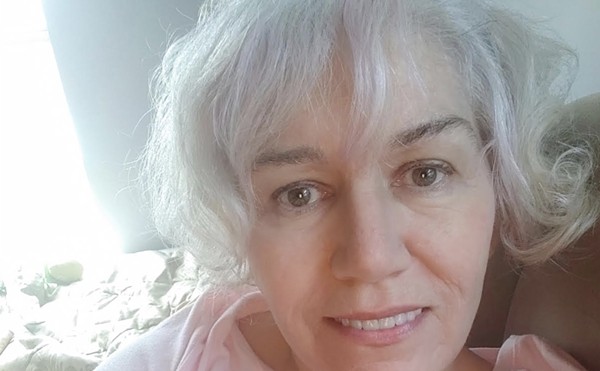On Jan. 21, Martin Luther King Day, about 80 activists began a 10-day march from Union Correctional Institution in Raiford, where Florida houses its 372 condemned prisoners, to the Capitol in Tallahassee, where Gov. Jeb Bush signs their death warrants.
The activists wanted a moratorium on the death penalty. Yet despite the fact that Florida leads the nation with 24 exonerated death-row inmates, Bush wasn't listening. When the marchers arrived at Bush's office with 20,000 signatures on their petition, he wasn't even there.
But what the governor wouldn't do, the U.S. Supreme Court did.
On Jan. 23, the court stayed the execution in Arizona of Amos King while it reviewed an Arizona case on the constitutionality of judge-issued death sentences. (Arizona and Florida are two of nine states that give judges, not juries, final say in handing out capital punishment.)
Two weeks later, the court did the same for Florida inmate Linroy Bottoson, just three hours before Bottoson's scheduled death. Bottoson, who may be mentally disabled, was convicted in the 1979 murder of Eatonville postmaster Catherine Alexander. With the writing on the wall, Bush subsequently stayed the execution of Robert Trease, who had dropped his appeals and volunteered himself for execution. No new death warrants have since been signed.
All legal eyes are now on the high court, which with one vote could erase all of Florida's death sentences. If the high court rules against Arizona, Florida may have to resentence its condemned in front of juries -- a tough task, given that some death-penalty cases are a dozen years old, with witnesses no longer available -- or force them to serve life without parole.
Indeed, the once pro-death penalty Supreme Court seems to be reversing direction, says Columbia University Law School professor James Liebman.
This week, Liebman and other Columbia professors published the most damning indictment of Florida's death-penalty system to date: This state sends more innocents to death row than any other. The problem, he says, is that the state is too aggressive. It seeks death far too often, whereas lethal injection should be saved for "the worst of the worst." The state's aggravating-vs-mitigating factors' law -- the basis of life-or-death decisions -- is too broad and favors overzealous prosecutors. In addition, judges are elected, and thus answer to an electorate that may want blood in high-profile cases, Liebman points out.
What's more, Florida doesn't put enough resources into its public defenders, he says. And poor attorneys make for sloppy defenses, which mean more cases that are eventually overturned.
















